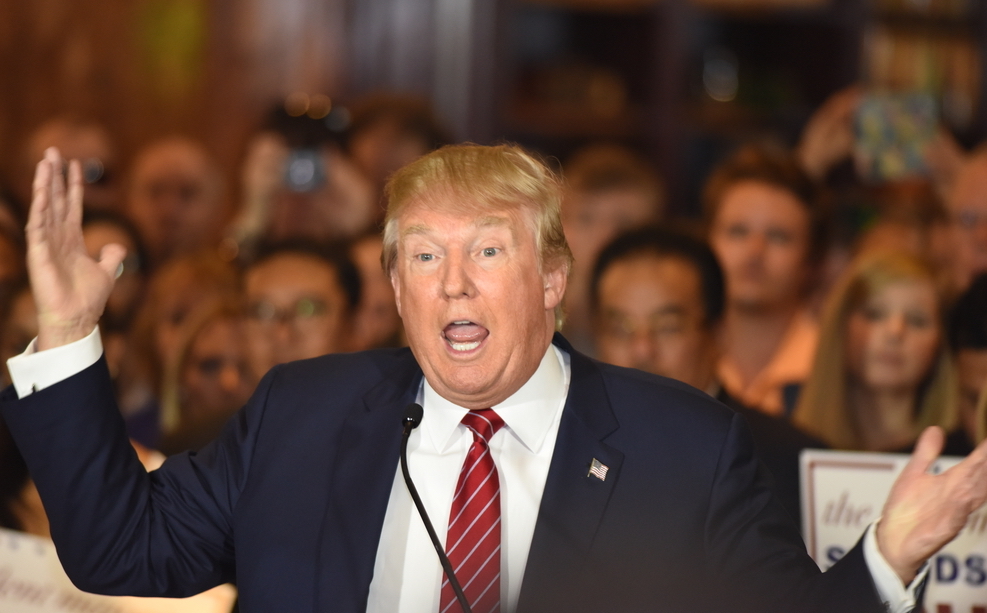Donald Trump’s base can’t buy a clue

During the plague years of 1665-1666, Isaac Newton fled Cambridge for his home in Lincolnshire and, as would any bored 23 year old, co-invented a method for the assembly and disassembly of infinitesimals that later became known as calculus. Calculus came in handy when, so the mythology goes, Newton later made the astonishing connection between a falling apple and the orbit of the Earth’s moon, and required calculus to describe that connection.
It’s not uncommon for us to look at such people as Isaac Newton and wonder how they did it, even though we sort of know the answer already. Even if you never studied calculus and you don’t know how gravity works, most people know that calculus and the theory of gravity are things that can be taught. It isn’t great genius that we find in fact so baffling, but its opposite quality, great stupidity. From where we sit, stupidity is a huge puzzle, and we continue to display our befuddlement by it or misunderstanding of it by behaving as if it’s a puzzle that ought to yield to an easily-fathomed ultimate solution.
The solution to the obdurate ignorance of Trump supporters, many of us believe, lies a mere Mueller testimony or tax return or pee pee tape away. But that is our mistake, in that the credit we give to the power of objective evidence is not transferable to our adversaries. Their thinking does not have an evidentiary basis.
Enter the Dunning-Kruger Effect, and if you’re not already conversant with it or require a refresher then here’s your chance. In short, the Dunning-Kruger Effect describes the inability of certain people of insufficient competence to accurately judge their own competence. Or, it’s the tendency of people of low competence to presume they are significantly more competent than they actually are.
Donald Trump is an example of this. His competence in virtually everything he claims to understand is breathtakingly low, but he consistently describes himself as not only competent but far more competent than others, or, not infrequently, far more competent than “anyone else.”
This is amazingly good news to those in his base who are also, like Trump, exemplars of the Dunning-Kruger Effect. They see in the life of Donald Trump a kind of vindication of the nonsense they have been spouting most of their lives. Not only is Trump rich, their thinking goes, but he’s successful. He is, after all, the President of the United States. A man just like them couldn’t have risen so high if they themselves hadn’t been right all along. Their prejudices, their ignorant mistrust of science, their sanctimonious belief in their own superiority, all find in Trump an apotheosis of absolution. It is a compelling belief system that is so perfectly self-protected as to be almost unassailable.
We need to lower our expectations and realize that very few Trump supporters have the wit or the willpower to change. That is why Trump’s support level has remained so stubbornly at around 35%, and probably always will. Our task is to teach the next generation how to think, how to reason, how to make valid connections between things.
I cannot imagine someone like Trump making, on his own, the connection Isaac Newton made between a falling apple and the orbit of the Earth’s moon, and I’m guessing neither can you. I’m betting a very small number of Trump’s fanbase, on the other hand, can. The rest of them don’t even understand the question.

Robert Harrington is an American expat living in Britain. He is a portrait painter.
